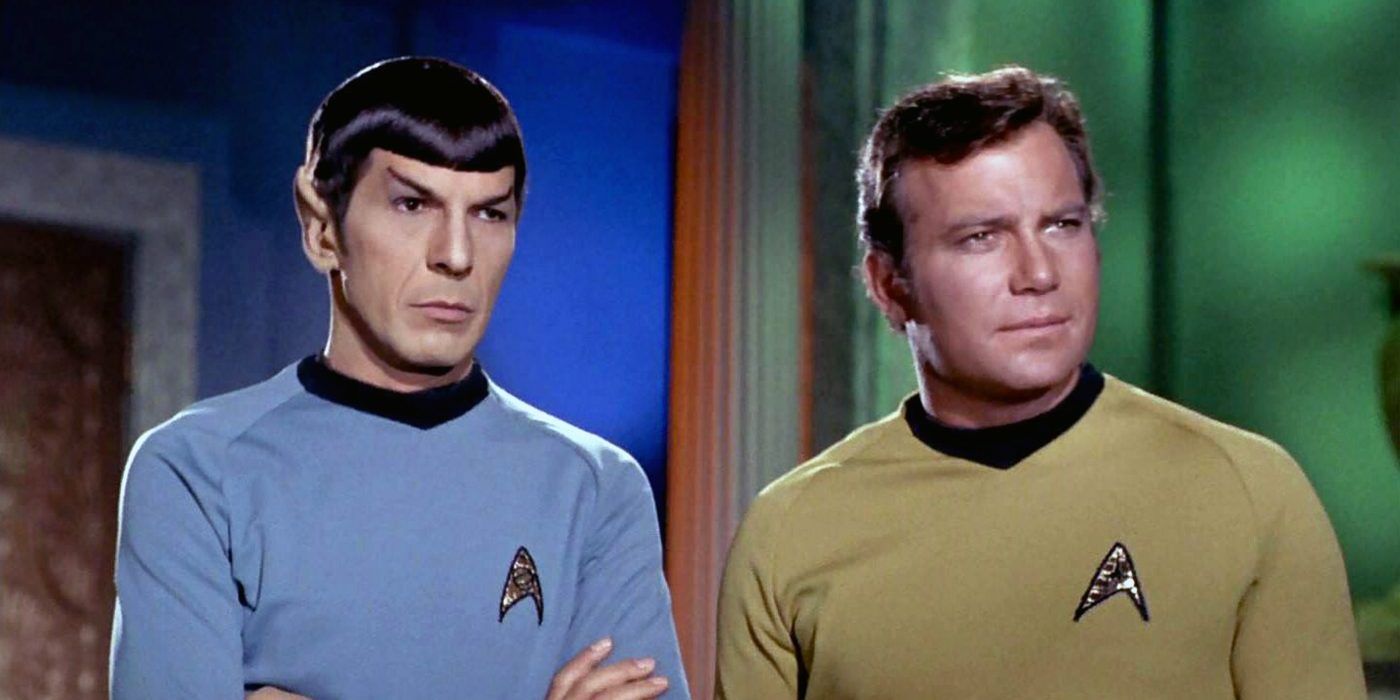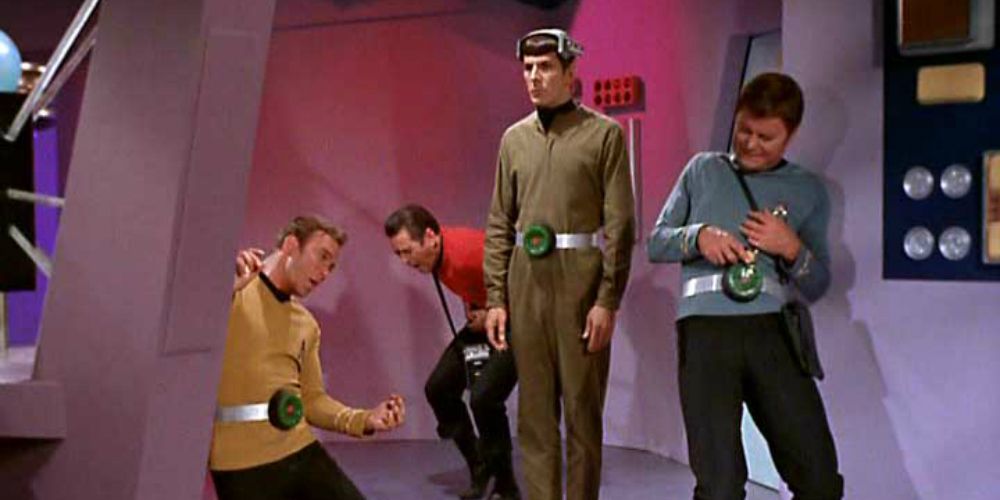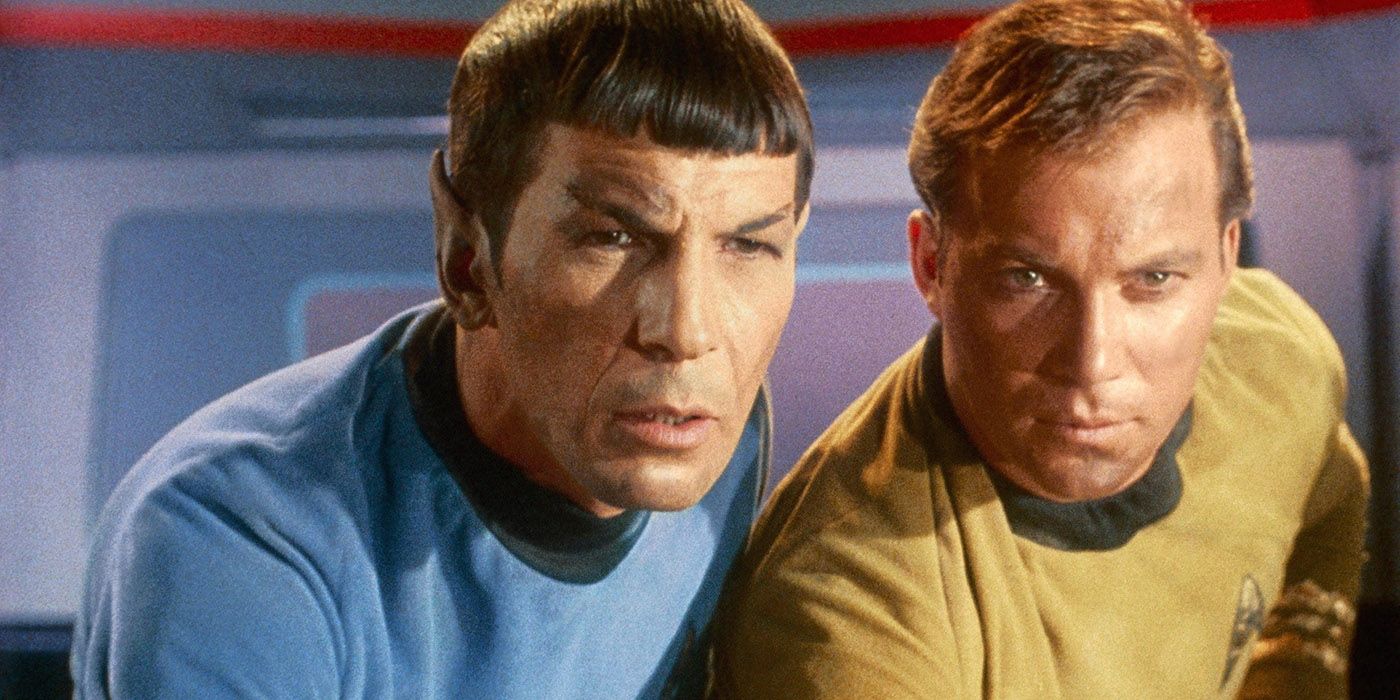
Gene Roddenberry's Star Trek is the lynchpin of modern science fiction television, both as a franchise and a decades-old pop culture movement that inspired everyone from artists to scientists. But it fought for that longevity, facing cancellation after only two seasons. A robust fan campaign quietly promoted by Roddenberry ensured Star Trek earned a third season and a guaranteed syndication future. However, triumph came with some cruel downsides, including budgetary cuts, the loss of Roddenberry as producer and time slot changes. As star Nichelle Nichols would later imply in her autobiography, it was blatant sabotage.
The campaign to save Star Trek roiled throughout early 1968 after rumors emerged that the series was on the brink of cancellation, deluging NBC with overloaded mail trucks containing hundreds of thousands of letters demanding the series be renewed. Peaceful protests surged across college campuses. Eventually, the situation forced the network's hand, and NBC made a rare prime-time announcement to tell the newly minted Trekkies that the series would in fact get its third season.

The victory was classically Pyrrhic, a battle won but with some questionable results. The first episode of the final season was "Spock's Brain," a story so notoriously awful that it constantly tops the lists of the worst Trek episodes of all time. William Shatner's own 1993 memoir, Star Trek Memories, remarked that the episode was a "tribute" to NBC's new effort to tank the series.
Behind the blatant awfulness of the series premiere, the gears of the network machine ensured Roddenberry was ground down and pushed out. Dispirited by the news that NBC was also slashing the per-episode budget, Roddenberry kept his title of executive producer but relinquished creative control to Fred Freiberger. Freiberger's lack of previous science fiction experience and the tight budget turned him into a scapegoat for season three's obvious failures. Roddenberry's reliable co-creator DC Fontana also returned to the freelance life before the new season went to air. Three of her scripts were still filmed, including the well-received "The Enterprise Incident."
In addition to the budgetary pressures that forced each new episode to shoot as cheaply as possible, slashing the already rare on-location or outdoor shoots to almost nothing, NBC also shook up the schedule. Originally the crown jewel of prime time, NBC shoved Star Trek to the infamous 'Friday night death slot.' Trapped at 10 to 11 p.m. on a night where its heavily youthful audience would be doing anything but sitting in front of the TV, NBC's assassination of the beloved series was on the cusp of complete.

The series finale, "Turnabout Intruder," did make a surprise return to its original prime time slot, airing at 7:30 p.m. on June 3, 1969. Like "Spock's Brain," it made for a bittersweet moment for the diehard fanbase. Another episode that regularly appears on Worst Of lists, "Turnabout Intruder" fumbled any discussion of feminism into a sexist romp, all while forcing Captain Kirk into a performance too campy for even Shatner's deep well of charm to handle. And with that, NBC washed its hands of a series they had deemed too expensive and too taboo to continue supporting.
Yet despite NBC's exhaustion with Star Trek's creators and its vocal fanbase, the franchise kept on trekking. It thrived in syndication, sometimes out-performing new shows in competing timeslots. The first Star Trek convention took place in New York City, three years after the series was canceled, and young viewers continued rediscovering the show during its frequent afternoon airings.
Star Trek's feeble ending became a stunning rebirth for the franchise as a whole. Though the 1972 animated series is often forgotten and considered a victim of a confusing audience demographic, it was a surprisingly strong show. Several years later, another television reboot was set aside in favor of going straight to the big screen. And with the blockbuster success of Star Trek: The Motion Picture ensuring there would be much more Star Trek to come, Gene Roddenberry got the last laugh in his secret war with NBC.
0 Comments